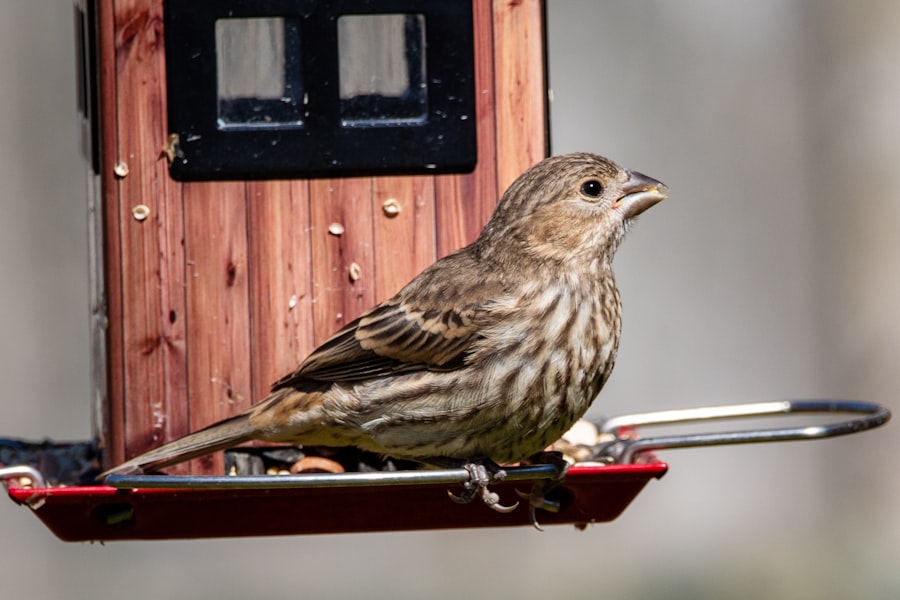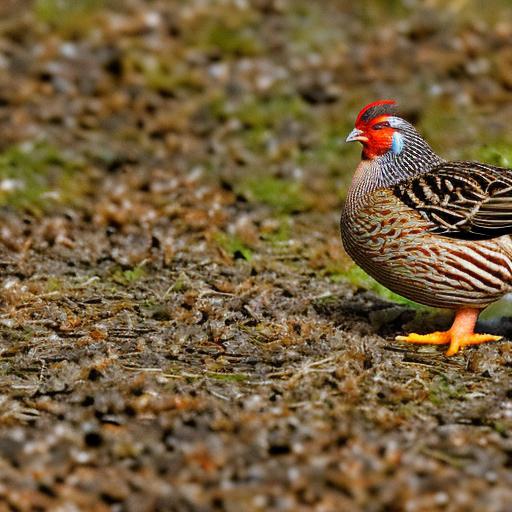When it comes to housing and space requirements for raising chickens, it’s important to provide a safe and comfortable environment for the birds. The size of the coop will depend on the number of chickens you plan to raise. A general rule of thumb is to allow at least 2-3 square feet of space per bird inside the coop, and 8-10 square feet per bird in the outdoor run. This will give the chickens enough room to move around, roost, and lay eggs comfortably.
The coop should be well-ventilated and provide protection from predators. It’s important to use sturdy materials for the construction of the coop to ensure it can withstand the elements and keep the chickens safe. Additionally, the coop should have nesting boxes for the hens to lay their eggs, as well as perches for roosting at night. The outdoor run should be enclosed with a wire mesh to prevent predators from getting in, and it’s a good idea to provide some shade and shelter from the elements.
In terms of bedding, it’s important to keep the coop clean and dry to prevent the spread of disease. Pine shavings or straw are commonly used as bedding material, and it should be changed regularly to maintain a healthy environment for the chickens. Overall, providing adequate housing and space for chickens is essential for their well-being and productivity.
When it comes to housing and space requirements for chickens, it’s crucial to ensure that they have enough room to move around and engage in natural behaviors. The size of the coop and outdoor run will depend on the number of chickens being raised, but it’s important to provide ample space for them to roam and forage. A spacious coop will also help reduce stress and aggression among the birds, leading to a healthier and more productive flock.
The coop should be well-ventilated to ensure good air quality and prevent the buildup of ammonia from droppings. It’s also important to provide adequate roosting space for the chickens to perch at night, as well as nesting boxes for the hens to lay their eggs. The outdoor run should be enclosed with a wire mesh to protect the chickens from predators, and it’s a good idea to provide some shade and shelter from the elements.
In terms of bedding, it’s important to keep the coop clean and dry to prevent the spread of disease. Pine shavings or straw are commonly used as bedding material, and it should be changed regularly to maintain a healthy environment for the chickens. Overall, providing a spacious and well-maintained living environment is essential for the health and well-being of chickens.
Key Takeaways
- Housing and Space Requirements:
- Provide a spacious and secure coop for your chickens to roam and roost.
- Ensure at least 2-3 square feet of space per chicken inside the coop and 8-10 square feet per chicken in the outdoor run.
- Feeding and Nutrition:
- Offer a balanced diet of commercial feed, grains, fruits, and vegetables.
- Provide access to clean water at all times and supplement with grit for digestion.
- Health and Disease Prevention:
- Keep the coop clean and dry to prevent the spread of diseases.
- Monitor for signs of illness and consult a veterinarian if necessary.
- Breeding and Incubation:
- Select healthy and genetically diverse breeding stock for optimal chick health.
- Use an incubator or broody hen for hatching eggs and provide a warm, stable environment.
- Egg Collection and Care:
- Collect eggs daily to prevent breakage and contamination.
- Store eggs in a cool, dry place and use within a reasonable timeframe.
- Behavior and Socialization:
- Provide enrichment activities and space for chickens to exhibit natural behaviors.
- Introduce new birds gradually to prevent aggression and establish a pecking order.
- Predation and Protection:
- Secure the coop with sturdy fencing and locks to deter predators.
- Use motion-activated lights or alarms to scare off nocturnal predators.
Feeding and Nutrition
Feeding and nutrition are crucial aspects of raising healthy chickens. A balanced diet is essential for proper growth, egg production, and overall health. A good quality commercial feed that is specifically formulated for chickens is a great starting point. This feed should contain a mix of grains, protein, vitamins, and minerals to meet the nutritional needs of the birds.
In addition to commercial feed, chickens can also benefit from kitchen scraps, fruits, vegetables, and even some table scraps. It’s important to avoid feeding them anything that is spoiled or moldy, as this can make them sick. Providing access to fresh water at all times is also essential for their health and well-being.
Chickens also require access to grit, which helps them grind their food in their gizzards. This can be provided in a separate container or scattered on the ground for them to pick up as needed. Additionally, offering oyster shell or crushed eggshells can help provide calcium for laying hens to produce strong eggshells.
Feeding and nutrition are essential components of raising healthy chickens. A balanced diet is crucial for proper growth, egg production, and overall health. Commercial feed that is specifically formulated for chickens is a great starting point, as it contains a mix of grains, protein, vitamins, and minerals to meet their nutritional needs.
In addition to commercial feed, chickens can also benefit from kitchen scraps, fruits, vegetables, and even some table scraps. It’s important to avoid feeding them anything that is spoiled or moldy, as this can make them sick. Providing access to fresh water at all times is also essential for their health and well-being.
Chickens also require access to grit, which helps them grind their food in their gizzards. This can be provided in a separate container or scattered on the ground for them to pick up as needed. Additionally, offering oyster shell or crushed eggshells can help provide calcium for laying hens to produce strong eggshells.
Health and Disease Prevention
Maintaining the health of your flock is essential for successful chicken keeping. Regular health checks are important to monitor for any signs of illness or injury. It’s important to be familiar with common chicken diseases and their symptoms so that you can take action quickly if needed.
Preventative measures such as vaccination and parasite control are important for keeping your flock healthy. Consult with a veterinarian or poultry specialist to develop a vaccination schedule based on your location and the specific diseases prevalent in your area. Additionally, regular cleaning of the coop and providing a clean living environment will help prevent the spread of disease.
Good hygiene practices are essential for preventing disease in your flock. This includes regular cleaning of feeders and waterers, as well as removing droppings from the coop and outdoor run. Providing access to fresh water at all times is also crucial for their health and well-being.
Maintaining the health of your flock is essential for successful chicken keeping. Regular health checks are important to monitor for any signs of illness or injury. It’s important to be familiar with common chicken diseases and their symptoms so that you can take action quickly if needed.
Preventative measures such as vaccination and parasite control are important for keeping your flock healthy. Consult with a veterinarian or poultry specialist to develop a vaccination schedule based on your location and the specific diseases prevalent in your area. Additionally, regular cleaning of the coop and providing a clean living environment will help prevent the spread of disease.
Good hygiene practices are essential for preventing disease in your flock. This includes regular cleaning of feeders and waterers, as well as removing droppings from the coop and outdoor run. Providing access to fresh water at all times is also crucial for their health and well-being.
Breeding and Incubation
Breeding chickens can be a rewarding experience, but it’s important to have a plan in place before starting this process. Selecting healthy breeding stock with desirable traits is essential for producing strong and productive offspring. It’s important to choose birds that are free from genetic defects and have good temperaments.
Once you have selected your breeding stock, it’s important to provide them with a suitable breeding environment. This includes providing nesting boxes for the hens to lay their eggs, as well as ensuring that they have access to a balanced diet and clean living conditions.
Incubating eggs can be done using an incubator or by allowing broody hens to sit on the eggs. If using an incubator, it’s important to carefully monitor temperature and humidity levels to ensure successful hatching. Once the chicks hatch, they will need a warm and safe environment to grow and develop.
Breeding chickens can be a rewarding experience, but it’s important to have a plan in place before starting this process. Selecting healthy breeding stock with desirable traits is essential for producing strong and productive offspring. It’s important to choose birds that are free from genetic defects and have good temperaments.
Once you have selected your breeding stock, it’s important to provide them with a suitable breeding environment. This includes providing nesting boxes for the hens to lay their eggs, as well as ensuring that they have access to a balanced diet and clean living conditions.
Incubating eggs can be done using an incubator or by allowing broody hens to sit on the eggs. If using an incubator, it’s important to carefully monitor temperature and humidity levels to ensure successful hatching. Once the chicks hatch, they will need a warm and safe environment to grow and develop.
Egg Collection and Care
Collecting eggs regularly is important for maintaining egg quality and preventing broodiness in hens. It’s best to collect eggs at least once or twice a day to ensure they are clean and fresh. Eggs should be stored in a cool place away from direct sunlight until they are ready to be used.
It’s important to handle eggs with care when collecting them from the nesting boxes. Rough handling can lead to cracks or damage that can compromise the quality of the eggs. It’s also important to clean any soiled eggs before storing them, as this can help prevent the spread of bacteria.
Proper egg care is essential for maintaining egg quality and safety. Collecting eggs regularly helps prevent broodiness in hens and ensures that eggs are clean and fresh when they are used. Handling eggs with care and storing them properly will help maintain their quality and safety for consumption.
Collecting eggs regularly is important for maintaining egg quality and preventing broodiness in hens. It’s best to collect eggs at least once or twice a day to ensure they are clean and fresh. Eggs should be stored in a cool place away from direct sunlight until they are ready to be used.
It’s important to handle eggs with care when collecting them from the nesting boxes. Rough handling can lead to cracks or damage that can compromise the quality of the eggs. It’s also important to clean any soiled eggs before storing them, as this can help prevent the spread of bacteria.
Proper egg care is essential for maintaining egg quality and safety. Collecting eggs regularly helps prevent broodiness in hens and ensures that eggs are clean and fresh when they are used. Handling eggs with care and storing them properly will help maintain their quality and safety for consumption.
Behavior and Socialization

Chickens are social animals that thrive in groups, so it’s important to provide opportunities for socialization within the flock. This includes providing enough space for them to move around freely without feeling crowded or stressed. Additionally, providing perches or roosts in the coop allows them to establish a pecking order and feel secure at night.
Chickens also engage in natural behaviors such as scratching, dust bathing, and foraging for food. Providing opportunities for these behaviors can help keep them mentally stimulated and reduce stress within the flock. Additionally, allowing them access to outdoor areas where they can roam freely can provide enrichment and improve their overall well-being.
Understanding chicken behavior is essential for providing a healthy and enriching environment for your flock. Chickens are social animals that thrive in groups, so it’s important to provide opportunities for socialization within the flock. This includes providing enough space for them to move around freely without feeling crowded or stressed.
Chickens also engage in natural behaviors such as scratching, dust bathing, and foraging for food. Providing opportunities for these behaviors can help keep them mentally stimulated and reduce stress within the flock. Additionally, allowing them access to outdoor areas where they can roam freely can provide enrichment and improve their overall well-being.
Understanding chicken behavior is essential for providing a healthy and enriching environment for your flock.
Predation and Protection
Protecting your flock from predators is essential for their safety and well-being. Common predators such as foxes, raccoons, hawks, and snakes pose a threat to chickens, so it’s important to take measures to keep them out of the coop and outdoor run.
Using sturdy fencing with buried wire mesh can help prevent predators from digging under or climbing over into the coop area. Additionally, installing motion-activated lights or sound devices can help deter nocturnal predators from approaching the coop at night.
Providing secure locks on coop doors and windows can also help prevent predators from gaining access to your flock. It’s important to regularly inspect the coop for any signs of damage or weak spots that could potentially allow predators in.
Protecting your flock from predators is essential for their safety and well-being. Common predators such as foxes, raccoons, hawks, and snakes pose a threat to chickens, so it’s important to take measures to keep them out of the coop and outdoor run.
Using sturdy fencing with buried wire mesh can help prevent predators from digging under or climbing over into the coop area. Additionally, installing motion-activated lights or sound devices can help deter nocturnal predators from approaching the coop at night.
Providing secure locks on coop doors and windows can also help prevent predators from gaining access to your flock. It’s important to regularly inspect the coop for any signs of damage or weak spots that could potentially allow predators in.
In conclusion, raising chickens requires careful attention to housing, feeding, health care, breeding practices, egg collection, behavior management, predation prevention measures among others in order ensure that they thrive in their environment while providing you with fresh eggs on a regular basis.
In conclusion, raising chickens requires careful attention to housing, feeding, health care, breeding practices, egg collection, behavior management, predation prevention measures among others in order to ensure that they thrive in their environment while providing you with fresh eggs on a regular basis. By providing a comfortable and safe living space, a balanced diet, regular health check-ups, and proper breeding practices, you can create a healthy and productive environment for your chickens. Additionally, implementing measures to protect them from predators and managing their behavior will contribute to their overall well-being and egg production. Overall, raising chickens can be a rewarding experience when done with care and attention to their needs.
If you’re interested in keeping quails and chickens, you may also want to explore the benefits of converting a shed into a chicken coop. This article on Poultry Wizard provides valuable insights and practical tips for repurposing a shed to create a comfortable and functional living space for your feathered friends. Whether you’re a seasoned poultry keeper or just starting out, this resource offers helpful guidance for optimizing your coop setup.
FAQs
What are the benefits of keeping quails and chickens?
Quails and chickens are great for providing fresh eggs, meat, and pest control in the garden. They also make for interesting and low-maintenance pets.
What do quails and chickens need in terms of housing and space?
Quails and chickens need a secure and predator-proof coop or hutch to protect them from predators. They also need enough space to move around and forage, with access to fresh air and sunlight.
What do quails and chickens eat?
Quails and chickens eat a diet of commercial poultry feed, supplemented with fresh greens, grains, and insects. They also need access to clean water at all times.
What are the key differences between keeping quails and chickens?
Quails are smaller and require less space and feed compared to chickens. They also lay smaller eggs and are generally quieter than chickens. However, chickens are more social and can be easier to handle and interact with.
What are some common health issues for quails and chickens?
Common health issues for quails and chickens include respiratory infections, parasites, and injuries. It’s important to provide proper nutrition, clean living conditions, and regular health checks to prevent these issues.
Are there any legal restrictions on keeping quails and chickens?
There may be local regulations or zoning laws that restrict the number of quails and chickens you can keep, as well as their housing and care requirements. It’s important to check with your local authorities before keeping quails and chickens.
Meet Walter, the feathered-friend fanatic of Florida! Nestled in the sunshine state, Walter struts through life with his feathered companions, clucking his way to happiness. With a coop that’s fancier than a five-star hotel, he’s the Don Juan of the chicken world. When he’s not teaching his hens to do the cha-cha, you’ll find him in a heated debate with his prized rooster, Sir Clucks-a-Lot. Walter’s poultry passion is no yolk; he’s the sunny-side-up guy you never knew you needed in your flock of friends!







